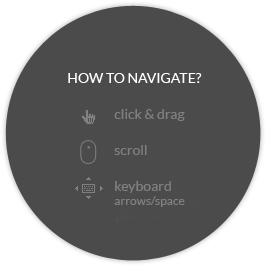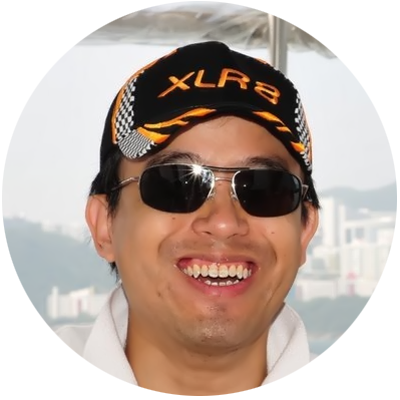Google Major Android Reorg Sparks Debate April 2024
Updated: April 21 2024 00:29Alphabet CEO Sundar Pichai has
announced several structural changes across the company to improve velocity and execution. These changes aim to simplify decision-making and help teams work better and faster. One major change involves the consolidation of teams focused on building AI models across Google Research and Google DeepMind into a single entity under Google DeepMind. This will allow for concentrated compute-intensive model building and simplified access for product teams looking to build generative AI applications using these models. Google is formalizing the collaboration between its Devices & Services Product Area (DSPA) and Platforms & Ecosystems (P&E) teams by bringing them together into a new Platform & Devices product area. This unified team will drive computing forward at the intersection of hardware, software, and AI.
Meanwhile, Google Research will have a distinct mandate to invest in foundational and applied computer science research in areas like computing systems, foundational machine learning and algorithms, and applied science related to societal impacts. This division of responsibilities clarifies the roles of these two organizations. To strengthen responsible AI development and deployment, teams working on Responsible AI in Google Research are being moved into Google DeepMind to be closer to where the models are built. Other responsibility teams have been integrated into the central Trust and Safety team to improve AI testing, evaluations, and processes.
Hiroshi's Exit
Hiroshi Lockheimer, the longtime head of Android and Chrome, will transition to a new role working on unspecified "new projects" at Google. This is a significant change given Lockheimer's tenure overseeing the development of Android into the world's most widely used operating system. It suggests Google wants fresh leadership and vision for its platforms in the AI era. His exit parallels major transitions like Jony Ive's legendary departure from Apple's design team.
I am honored to work with Hiroshi and his team in the past. I witnessed the inception of the Android project, his vision and leadership have been the guiding lights that led Android through the labyrinth of opportunities. Hiroshi's ability to lead the team, to turn every difficult challenge into an opportunity, has been nothing short of inspirational. His contributions to Android will always be held in high regard and may his next journey be filled with success and fulfillment.
The new Platforms & Ecosystems unit
Rick Osterloh will oversee the entire Platforms & Devices PA, while Sameer Samat will lead the Android ecosystem. In the announcement, Pichai highlights the strong performance of products like Google One, Chrome, Android, and the Pixel device family. The integrated Platforms & Devices team aims to build on this momentum by strengthening collaboration to benefit users and partners.
Beyond the organizational changes, Pichai emphasizes in the "Mission First" section the importance of maintaining focus on Google's mission, highlighting that this is a business, and not a place to act in a way that disrupts coworkers or makes them feel unsafe, to attempt to use the company as a personal platform, or to fight over disruptive issues or debate politics. Most people thinks this is likely related to the
recent employee protest at Google.
OEMs Partnership Pressures
The reorg has generated significant discussion and debate among tech industry observers and commenters. The move is being positioned as a way to better integrate Google's AI capabilities across its various platforms and devices. However, opinions are divided on whether this restructuring will have the intended positive impact or may lead to unintended negative consequences. By merging the Pixel team directly under the same leadership as Android, some fear heightened conflicts of interest that could make OEMs feel Google is playing dual roles as partner and competitor. If OEMs like Samsung feel there is any possibility of Google playing favorites with Pixel by virtue of its control of Android's core, they may choose to limit their dependence and investments in Android. Some may even put more investment to pursue the forked version of Android/AOSP with better control of their future.
In my opinion, bringing the software and hardware teams together may foster tighter integration and optimization of Google's AI technologies on its various platforms. This is a necessary step for Google to better compete with Apple's vertical integration of its highly popular products & services. This move is a necessary reaction to the rise of OpenAI's ChatGPT and all the recent AI investment from Microsoft, NVIDIA, and Meta (see the
recent announcement about Ollama 3). Having said that, iPhones already have an amazing 85% ownership among youth, Android needs to strengthen its OEMs confidence with its current hardware diversity advantage over iOS, otherwise, it will risk accelerating market share losses against Apple. According to Piper Sandler’s biannual “Taking Stock With Teens” survey, 85% of U.S. teens surveyed currently own an iPhone, while 86% are planning to buy Apple’s smartphone when they purchase their next smartphone.
Check out the Piper Sandler "Taking Stock With Teens" Spring 2024
Infographics here.
The AI Obsession
Infusing more AI into Android, Chrome OS, and Google's hardware products makes strategic sense as the company looks to differentiate its offerings. Use cases could range from more intelligent virtual assistants to AI-enhanced phone with photo/video features to predictive UI experiences.
Some people are more skeptical that a reorganization alone will lead to meaningful improvements in Google's AI capabilities or user experiences. Google has a history of frequent reorgs and "AI-washing" - slapping the AI label on incremental or cosmetic changes. Some believe this latest move may be more about chasing the AI hype and buzzwords rather than a substantive strategic shift. Simply combining teams does not guarantee better collaboration or output. Rather than chasing AI buzzwords, Google should focus on fixing long-standing issues with its existing products and services, like the decline of its search user experience. Catching up to OpenAI/Microsoft may require bolder moves than an internal reorg.
In additions, it could reduce the independence of the Android team and make the Android AOSP development more beholden to Google's own hardware priorities rather than the needs of the broader ecosystem with other Android OEMs partners. This combination could help Google better compete with Apple's tight integration of software and hardware. However, it risks alienating other Android phone makers like Samsung who may fear Google will prioritize its own Pixel devices. Google will have to carefully balance being both a neutral platform steward and a hardware competitor.

In summary, while industry veterans understand Google's desire for tighter hardware-software integration, many criticized the "AI" branded rationale as obfuscating real motives and raised concerns about Android's openness, partnership dynamics, and overall product priorities amidst major leadership changes. In my opinion, the new team structure can potentially benefit Android in the long run. It will allow Google to streamline its operations and create a more cohesive AI-powered vision for the Android platform and the Pixel devices. Only time will tell what the impact of Google's new Platforms and Devices team will be.
Check out my recent posts







